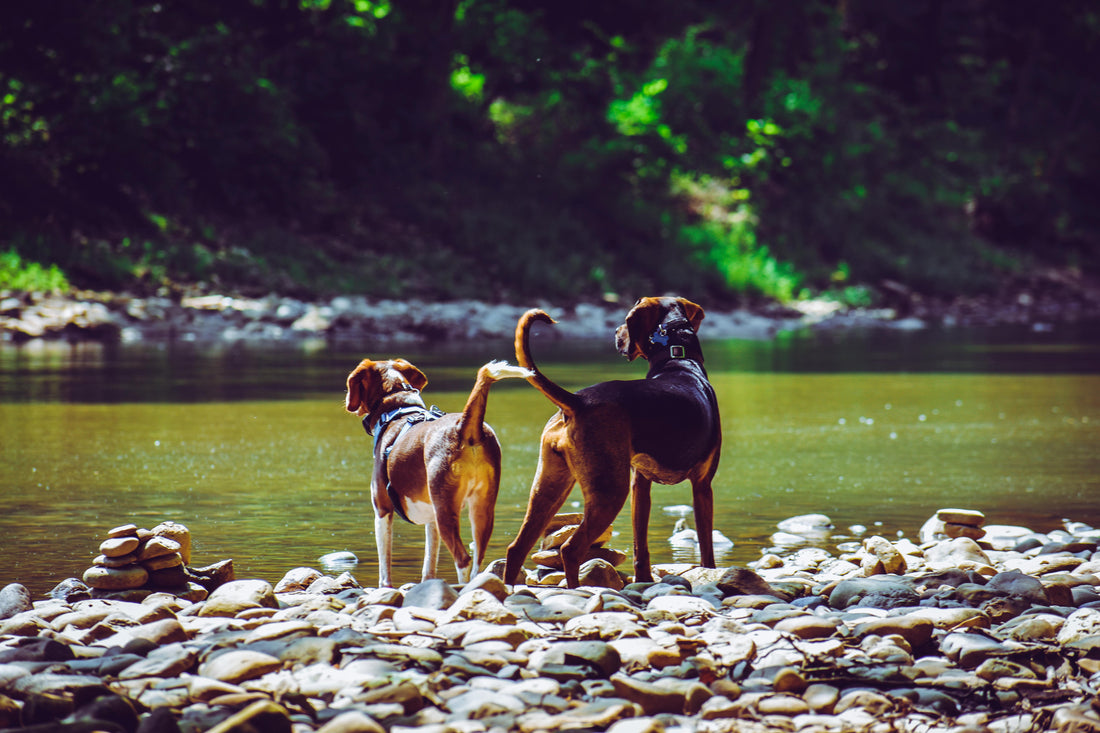If you’ve ever caught your dog chewing or even swallowing rocks, you’re not alone. While it may seem like a strange (and worrying) behaviour, it’s actually more common than you might think. Rock eating, known as pica (the urge to eat non-food objects), can be dangerous for your pup and should never be ignored.
In this article, we’ll explore the reasons why dogs eat rocks, the risks involved, and practical ways to prevent it.
Why Do Dogs Eat Rocks?
There are several reasons your dog might pick up rocks, ranging from medical issues to behavioural needs.
1. Medical Reasons
Sometimes dogs eat rocks because of an underlying health problem such as:
-
Nutrient deficiencies – if your dog isn’t getting enough fibre or minerals.
-
Gastrointestinal issues – stomach discomfort may cause them to chew unusual objects.
-
Diabetes, anaemia, or parasites – conditions that can increase appetite for non-food items.
If you suspect a medical cause, a vet check is essential.
2. Boredom and Stress
Dogs often chew rocks out of boredom, stress, or anxiety. If they don’t have enough mental and physical stimulation, they may look for alternatives in their environment.
3. Teething in Puppies
Puppies chew on anything to relieve the discomfort of teething — and rocks can unfortunately be one of the things they find.
Providing the right chew toys can help redirect this behaviour safely.
Why Rock Eating is Dangerous
While chewing rocks may seem like harmless mischief, it can actually lead to serious health problems, including:
-
Broken teeth
-
Mouth or throat injuries
-
Choking hazards
-
Digestive blockages
-
Internal bleeding or infections
Even small rocks can cause big problems if swallowed, so it’s important to stop the behaviour quickly.
How to Prevent Dogs from Eating Rocks
Here are some effective steps to keep your pup safe:
1. Rule Out Medical Issues
Always start with a vet visit. If your dog has a deficiency or condition, your vet can recommend the right treatment or dietary changes.
2. Provide Plenty of Chew Alternatives
Dogs need safe, satisfying items to chew. Tough, durable chew toys are a great way to redirect their attention while also promoting dental health.
3. Increase Exercise and Mental Stimulation
A tired dog is less likely to seek out rocks. Daily walks, games, and play sessions are essential.
4. Manage Their Environment
If your dog has access to rocky areas, supervise them closely. You may need to train a strong “leave it” command or restrict access to areas where rocks are common.
5. Consider Diet Adjustments
If your vet suspects your dog is lacking nutrients, you can explore natural food supplements and balanced treats as healthy alternatives to inappropriate chewing.
Final Thoughts
Rock eating in dogs is a behaviour that should never be ignored. Whether it’s due to boredom, stress, or an underlying medical issue, swallowing rocks can pose serious health risks. By working with your vet, providing safe chew toys, and keeping your pup mentally and physically engaged, you can redirect this behaviour and keep them safe.

